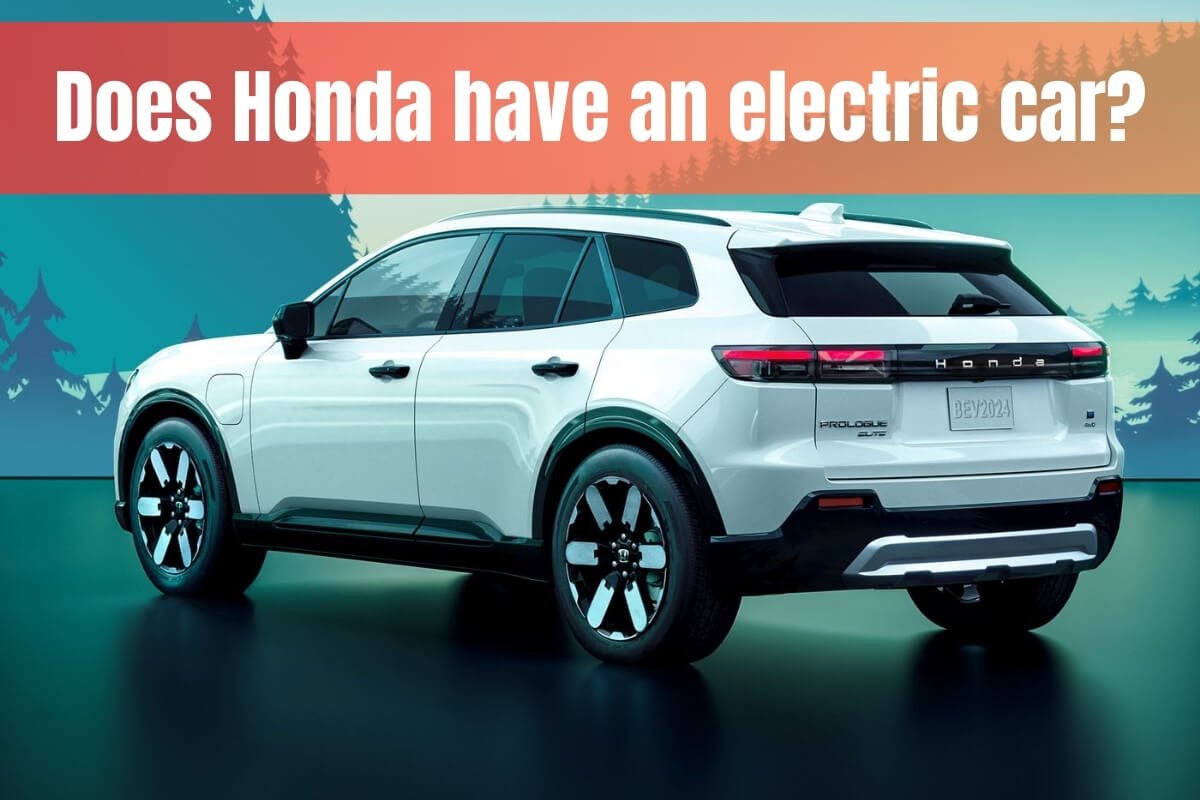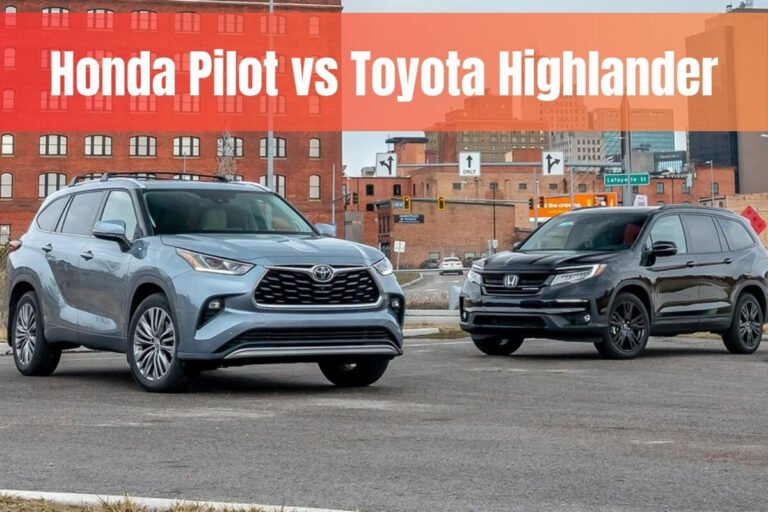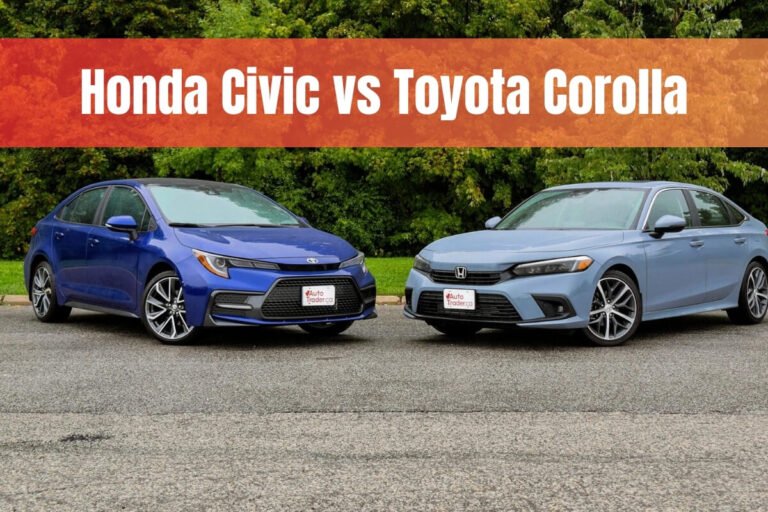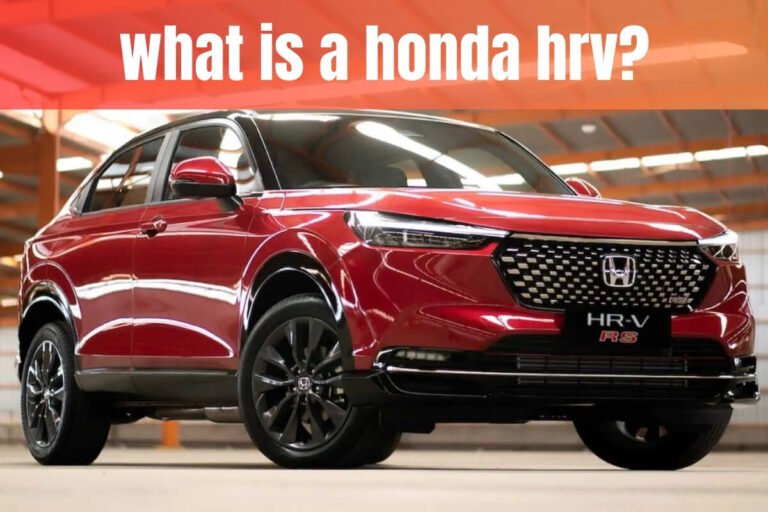Does Honda have an electric car?

The automotive industry has witnessed a seismic shift towards electrification in recent years. As concerns over environmental impact and sustainability continue to grow, major automakers have been actively embracing electric vehicles (EVs) as the future of transportation. Honda, a name synonymous with reliability and innovation, has also taken significant strides in this realm, albeit at a more measured pace compared to some of its competitors.
Does Honda have an electric car? Yes, Honda has introduced several electric car models, including the compact Honda e for the European and Japanese markets, and the 2024 Prologue, the company’s first all-electric SUV for the North American market. Additionally, Honda has announced plans for a robust lineup of electric vehicles in the coming years.
In this comprehensive blog post, we’ll explore Honda’s electric car offerings in detail, delving into their current lineup, upcoming models, and the company’s vision for the future of electric mobility. We’ll also examine the advantages of choosing a Honda electric vehicle, address some of the challenges and criticisms faced by the automaker, and provide answers to frequently asked questions.
Honda’s Approach to Electric Vehicles
Honda has a long history of exploring alternative fuel technologies, dating back to the late 1990s when the company introduced the first mass-produced hybrid vehicle, the Honda Insight. The automaker also ventured into fuel cell vehicles with the FCX Clarity, offering a zero-emission solution powered by hydrogen.
However, when it came to fully electric vehicles, Honda appeared hesitant initially. While competitors like Tesla, Nissan, and Chevrolet were making significant strides in the EV market, Honda’s offerings remained limited, primarily catering to specific markets like California with models like the Fit EV and the Clarity Electric.
In recent years, Honda has undergone a strategic shift, recognizing the growing demand for electric vehicles and the need for sustainable transportation solutions. The company has committed substantial resources to accelerate its electrification efforts, with plans to introduce a robust lineup of electric vehicles globally.
Honda’s Current Electric Car Lineup
The Honda e: A Compact and Stylish City EV
Honda’s first mass-produced electric car for the global market is the Honda e, a compact and stylish city EV that has garnered attention for its retro-inspired design and advanced technology.
Launched in 2020, the Honda e is available in Europe and Japan, primarily targeting urban dwellers and commuters. This pint-sized EV boasts a range of up to 137 miles (WLTP cycle) from its 35.5 kWh lithium-ion battery pack, making it suitable for daily urban commutes and short trips.
While the Honda e’s range may be limited compared to some of its competitors, it compensates with its adorable styling, high-tech interior, and agile handling. Features like the dual 12.3-inch touchscreens, digital side mirrors, and Honda’s Parking Pilot system make the e a tech-savvy and user-friendly option for city dwellers.
However, the Honda e’s availability remains limited to certain markets, with no plans for its introduction in North America as of now. The automaker cited the e’s relatively short range as one of the primary reasons for this decision, recognizing the demand for longer-range EVs in the American market.
The 2024 Honda Prologue: Honda’s First All-Electric SUV for the U.S.
Recognizing the growing demand for electric SUVs in the North American market, Honda has partnered with General Motors to introduce the 2024 Prologue, the automaker’s first all-electric SUV for the U.S.
The Prologue is based on GM’s Ultium platform, which underpins several of the domestic automaker’s electric vehicles, including the Chevrolet Blazer EV. This strategic partnership allows Honda to leverage GM’s expertise and resources in electric vehicle technology, while offering a product tailored to its brand’s design language and customer preferences.
Specifications, Range, and Pricing
The 2024 Honda Prologue will be available in both front-wheel-drive and all-wheel-drive configurations, powered by a single electric motor or a dual-motor setup, respectively. The all-wheel-drive variant is expected to produce 288 horsepower and 333 lb-ft of torque, delivering spirited performance while maintaining Honda’s trademark driving dynamics.
One of the standout features of the Prologue is its impressive range. Honda estimates that the front-wheel-drive model will offer up to 300 miles of range on a single charge, thanks to its 85 kWh battery pack. The all-wheel-drive variant is expected to offer slightly less range, but still competitive figures in the mid-to-high 200-mile range.
In terms of pricing, the 2024 Honda Prologue is expected to start in the upper $40,000 range for the base trim, making it a competitive offering in the electric SUV segment.
Charging Options and Incentives
To enhance the ownership experience, Honda is offering various charging package options for the Prologue. These include home charging station installations with incentives, public charging credits, and even a complimentary sampling of DC fast charging at Electrify America stations.
The Prologue supports up to 155 kW DC fast charging, which can add approximately 65 miles of range in just 10 minutes of charging. Honda’s partnership with EVgo and ChargePoint also ensures that Prologue owners will have access to a vast network of public charging stations across the country.
Upcoming Honda Electric Vehicles
While the Honda e and the 2024 Prologue mark the automaker’s initial forays into the electric vehicle market, Honda has ambitious plans to expand its EV lineup significantly in the coming years.
The Honda e:Ny1: First Electric Crossover for Europe
One of the most anticipated upcoming models from Honda is the e:Ny1, the brand’s first electric crossover designed specifically for the European market. Expected to launch later in 2023, the e:Ny1 will be a compact SUV with a coupe-like design, targeting families and urban dwellers alike.
Powered by a 68.8 kWh battery pack, the e:Ny1 is projected to offer a range of approximately 250 miles (WLTP cycle) and a maximum power output of 150 kW. Honda has also promised advanced driver-assistance features, such as its Parking Pilot system, to enhance the overall ownership experience.
The Honda Zero Series and Future Plans
At the 2024 Consumer Electronics Show (CES), Honda unveiled the “Honda Zero” series, a new lineup of electric vehicles that will be introduced globally starting in 2026. The automaker showcased two concept vehicles, the Saloon and the Space-Hub, which previewed Honda’s design direction and philosophy for its future EVs.
The Honda Zero series is intended to embody the principles of “thin,” “light,” and “wise,” aiming to create lightweight and aerodynamic electric vehicles with advanced technologies and sustainable materials.
Honda has set ambitious goals for its electrification efforts, targeting 30 new EV models globally by 2030, with an annual sales volume of 2 million units. The company also aims to achieve 100% zero-emission auto sales by 2040 and carbon neutrality across all products and corporate activities by 2050.
Advantages of Choosing a Honda Electric Car
While Honda may have been a bit late to the EV party, the automaker’s electric vehicles offer several advantages that appeal to eco-conscious consumers and driving enthusiasts alike.
Reliability and Quality Assurance
Honda has built a reputation for producing reliable and long-lasting vehicles, and this ethos extends to its electric car offerings as well. With decades of experience in automotive manufacturing and a commitment to quality, Honda electric vehicles are designed to provide a dependable and hassle-free ownership experience.
Advanced Technology and Safety Features
Honda is known for incorporating cutting-edge technologies into its vehicles, and its electric cars are no exception. From advanced driver-assistance systems like Honda Sensing to high-tech infotainment systems and innovative features like digital side mirrors, Honda’s EVs offer a tech-savvy and connected driving experience.
Additionally, Honda’s electric vehicles are engineered with the same rigorous safety standards as their gasoline-powered counterparts, ensuring the highest levels of occupant protection.
Potential Cost Savings and Environmental Benefits
One of the primary advantages of owning an electric vehicle is the potential for significant cost savings over the long term. With no need for gasoline and lower maintenance costs, Honda’s electric cars can offer substantial savings compared to traditional internal combustion engine vehicles.
Moreover, by choosing an electric car from Honda, consumers can contribute to a more sustainable future by reducing their carbon footprint and minimizing their environmental impact.
Challenges and Criticisms
While Honda’s foray into the electric vehicle market is commendable, the automaker has faced several challenges and criticisms along the way.
Limited Range and Charging Infrastructure Concerns
One of the primary criticisms leveled against Honda’s electric offerings, particularly the Honda e, is their relatively limited range. With a maximum range of around 137 miles (WLTP cycle), the Honda e may not be suitable for longer journeys or for those without access to frequent charging opportunities.
While the 2024 Prologue addresses this concern with its impressive 300-mile range, the overall charging infrastructure in certain regions of the United States remains a challenge. Consumers may face range anxiety and limited charging options, particularly in rural areas or during long road trips.
Pricing and Competition from Established EV Players
Another criticism directed at Honda’s electric car lineup is the pricing strategy. The Honda e, for instance, commands a premium price tag, which may make it less accessible for budget-conscious consumers, especially considering its limited range.
Moreover, Honda faces stiff competition from well-established electric vehicle manufacturers like Tesla, as well as legacy automakers like Ford, Volkswagen, and Hyundai, who have already gained a significant foothold in the EV market.
Honda’s Perceived Late Entry into the EV Market
Despite its reputation for innovation and forward-thinking, Honda has been perceived as a latecomer to the electric vehicle market. While competitors like Tesla and Nissan were pioneering the EV revolution, Honda remained cautious, only recently accelerating its electrification efforts.
This perceived late entry has raised questions about Honda’s ability to catch up with its rivals and establish a strong presence in the rapidly evolving EV landscape.
Frequently Asked Questions
Is Honda offering any incentives or tax credits for their electric cars?
Yes, Honda is offering various incentives and charging package options to make the ownership experience more attractive for its electric car buyers. These include home charging station installation incentives, public charging credits, and complimentary DC fast charging sessions at Electrify America stations.
Additionally, Honda’s electric vehicles may qualify for federal and state tax credits or rebates, depending on the specific model and the applicable regulations.
How do Honda’s electric vehicles compare to competitors in terms of range and performance?
Honda’s electric vehicles, particularly the 2024 Prologue, offer competitive range figures and performance capabilities compared to other electric SUVs in the market. The Prologue’s estimated range of up to 300 miles for the front-wheel-drive variant is on par with or exceeds many of its rivals.
In terms of performance, the Prologue’s all-wheel-drive variant, with its 288 horsepower and 333 lb-ft of torque, promises spirited acceleration and responsive handling, in line with Honda’s reputation for driving dynamics.
What is the real-world range of Honda’s electric cars?
While Honda provides EPA-estimated range figures for its electric vehicles, real-world range can vary based on several factors, including driving conditions, weather, and individual driving styles.
For the Honda e, owners have reported real-world ranges of around 90-120 miles, which aligns with the vehicle’s city-focused design and intended use case.
As for the 2024 Prologue, real-world range figures are yet to be comprehensively tested, but early indications suggest that it should achieve close to its estimated 300-mile range in optimal conditions.
How long does it take to charge a Honda electric vehicle?
The charging time for a Honda electric vehicle depends on the type of charger used and the vehicle’s battery capacity.
For the Honda e, a full charge from a 7.4 kW home wallbox takes approximately 5 hours, while a 100 kW DC fast charger can replenish the battery from 10% to 80% in around 31 minutes.
The 2024 Prologue, with its larger 85 kWh battery pack, supports up to 155 kW DC fast charging, which can add approximately 65 miles of range in just 10 minutes of charging.
Does Honda plan to expand its electric lineup in the future?
Absolutely! Honda has ambitious plans to expand its electric vehicle lineup significantly in the coming years. The automaker has announced its goal of introducing 30 new EV models globally by 2030, with an annual sales volume of 2 million units.
Additionally, Honda unveiled the “Honda Zero” series at the 2024 Consumer Electronics Show, showcasing concept vehicles that preview the company’s design philosophy and approach to future electric vehicles.
In Summary
Honda, a brand known for its reliability and innovation, has taken significant strides toward electrification in recent years. While the company may have been cautious in its initial approach, it has recently unveiled exciting models like the Honda e and the 2024 Prologue, catering to the growing demand for electric vehicles.
With a commitment to sustainability and advanced technology, Honda’s electric car offerings aim to provide eco-friendly transportation solutions without compromising performance, safety, and driving pleasure. As the automaker continues to expand its EV lineup and address challenges related to range, pricing, and charging infrastructure, Honda’s electric vehicles are poised to become a compelling choice for eco-conscious consumers seeking the blend of innovation, reliability, and driving dynamics that the brand is renowned for.






